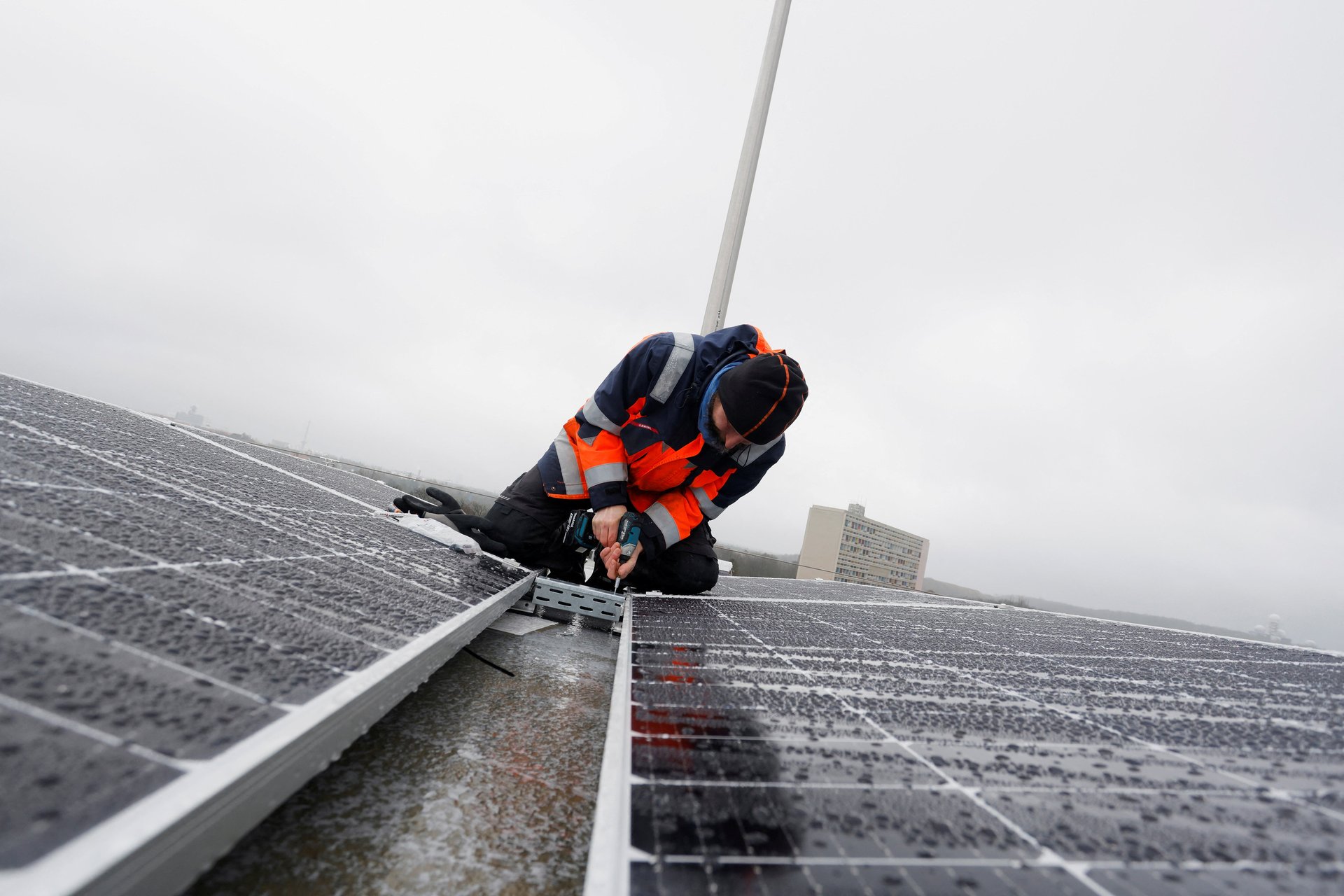Europe is replacing energy dependence on Russia with solar reliance on China
Chinese solar panel exports to the EU have soared as the bloc pivots from Russian fuels.

Europe relied on cheap Russian energy for decades. And Russia was happy to supply low-cost oil and gas to gain political influence over the European Union.
That relationship has now imploded. The EU has finally woken up to the national security risks of relying on an authoritarian neighbor for energy.
But as Europe scrambles to cut its dependence on Russia, it risks further entrenching its reliance on another authoritarian country—China—for solar panels, in its push to tap alternative energy sources.
Chinese exports of solar panels to Europe are surging
Chinese customs data show a steep rise in exports of solar panels to Europe. The value of solar panels sold to the EU from January to August this year totals over $16 billion, more than double the $7.2 billion over the same period last year.
In part, the increase in export value is driven by the rising costs of producing solar panels. Polysilicon, a key raw material for makings solar panels, hit record prices in China this year, for example, in turn forcing manufacturers to raise prices.
But measuring Chinese solar panel sales to Europe by power generation capacity similarly shows a marked increase.
According to InfoLink, a Taiwan-based renewable energy consulting firm, Europe imported 42.4 gigawatts of Chinese photovoltaic modules in the first half of 2022, a 137% year-on-year increase. One gigawatt is equivalent to about 3.125 million solar panels, according to the US Department of Energy.
The EU is swapping out one autocracy for another
The EU already depends on China for the bulk of its solar panels.
In 2021, China accounted for 75% of global solar panel production, versus 2.8% for Europe, according to the International Energy Agency. And China has an even tighter grip on the components and materials required to make solar panels, such as solar cells, silicon wafers, and polysilicon.
As Europe pivots from Russian fossil fuels, the Chinese solar industry stands to gain—potentially at the expense of the EU’s energy security. Indeed, in May, when the bloc announced its 210-billion-euro ($208-billion) plan to wean itself off Russian energy, the stocks of major Chinese solar manufacturers rallied.
“With Europe importing 80% of its solar panels from China, dependencies would merely shift from imported oil or gas to imported solar equipment, leaving much to be desired when it comes to the solar sector as a genuine source of energy security and strategic autonomy,” Kjeld van Wieringen and Julia Hüntemann of the European Parliamentary Research Service wrote recently (pdf).
Just as Russia has proven willing to weaponize economic relations for political goals, China has shown itself to be capable of doing the same. Look, for instance, at Beijing’s economic boycott of Lithuania after it showed support for Taiwan.
Or as Mark Widmar, CEO of US manufacturer First Solar, put it in a July op-ed: “Solar is ‘freedom energy’ – unless we depend on autocracies for the technology.”
